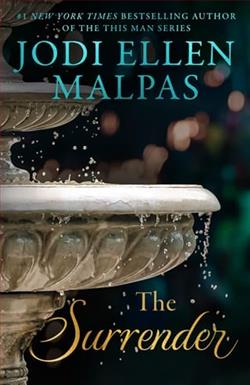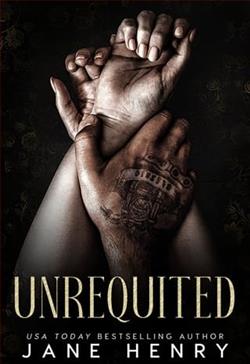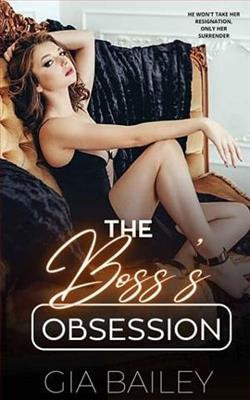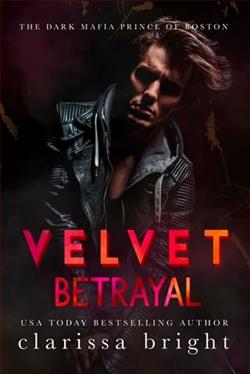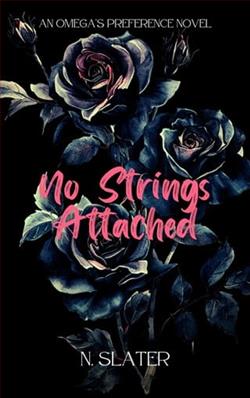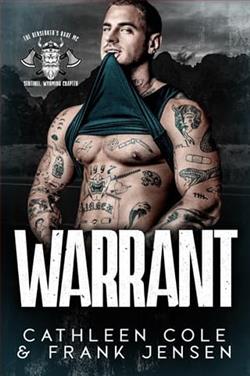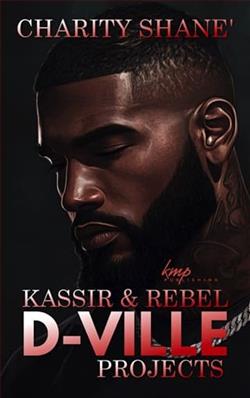Page 139 of Crescendo
“Economy class when you’re five foot ten. It takes it out of you. But I guess it’s not too bad to see you either. And am I ever glad it’s sunny,” I said, gesturing to the shoes, and she struck a pose showing them off.
“I had them made custom.”
“I… believe it.”
She folded her arms. “So, I hear Miss Hendrickson doesn’t even know you’re here.”
I grinned, putting a shushing finger up to my lips. “It’ll be fun this way,” I said. “I told her I would see her at the Royal Albert Hall, and I intend to make good on that.”
“You are… certainly something.”
“Thank you, I’m taking it as a compliment. Now, shall we move? Or is it even possible to walk in those ghastly heels?”
“It’s terrible. But we must make sacrifices in the name of fashion.”
“Sacrificesin that you ritually sacrificed a unicorn and bathed your shoes in its sparkly rainbow blood, yes, I can believe it. Anyway, I need a sandwich, a flat white, and one of the world’s greatest orchestras.”
“You’re so demanding. I don’t know why we let you back in the country.” But she didn’t seem to mind too much, because she led me to get all three of the above—took the Tube to South Ken and stopped into a café for a quick meal, and then to my hotel close by to the hall, where I got to drop off my luggage and fall on the bed to send Ella a text.
finally finished with the day! getting ready for the morning shift?
She replied with a picture of her breakfast, and we went back and forth chatting like everything was normal, as if we weren’t a few stops away from each other on the Tube right now. I was there longer than I should have been—by the time I finally told her I was going to sleep and wished her luck with work for the day, I had to rush to take a shower and get ready, only narrowly making it in time to meet Adam and the director at the hall, giving both of them cheek kisses and gushing pleasantries that subsided once the director left to address the orchestra and I wound up alone with Adam.
“I think you may be the most insufferable person I’ve met in my life,” he said lightly.
“Thank you. I do love a superlative.”
He shook his head. “The worst part is, I can’t even complain about your antics too openly, because the whole orchestra is too excited to work with you. A whole bunch of raving fans of yours. They’re probably going to ask for your autographs after the rehearsal.”
“Is this your lead-in to ask for my autograph yourself?”
“Not on my life, Lydia Howard Fox. All right,” he said, standing up taller, “I have places to be. I trust it will take aboutten minutes for you to integrate perfectly with the orchestra. Just be careful in there. You do too well and they’ll be clamoring for you to stay.”
“People begging for more of me doesn’t sound like the worst fate.”
I’d frankly expected him to be exaggerating a little bit—thought that even the ones who were fans of my work would play it cool and professional for now—but I was straight-up mobbed when I got into the room. I put on my charm face, gushing to people and getting everyone’s names, telling them how wonderful it was to be working together, making some clever comments to the first violin, stopping through the underappreciated percussion section to show them some love, and the regular conductor, an older white woman, the very same Cynthia Altman who I’d seen perform at the Royal Albert Hall at my first time in London, was about the only one who kept her cool, smiling lightly at me as I took position at the front of the room.
“Tell me honestly,” she said, “because Adam dodged the question. Is this just a marketing stunt for your new film?”
“On the contrary, the director was of half a mind to break my legs if it would stop me from flying off to London right now. If I hadn’t had a co-composer on the score with me, I doubt he’d have let me.” I paused. “I’m very willful, so I’d still have gone, it just would have caused a meltdown.”
“Hm. I have heard that about you.”
“It’s quite an honor to meet you too, Miss Altman.”
“I’m looking forward to seeing your style. I’m making a concession, trusting you with my orchestra…”
I laughed. “My interpretation of the piece, I think, should be close to the composer’s vision. We always worked well together. Your orchestra is safe in my hands.”
It was an indescribable feeling, leading the orchestra through Ella’s piece—going through the room to talk points on each part of it, having spent hours poring over every inch of the score, every last note, every tempo and tone marking, everything Ella had put together to convey her feelings across the ocean—across the river. Gave the clarinets special attention, letting them know thatno pressure but this whole piece rests on you,and they really were suckers for me, because they seemed to enjoy being told that all of my expectations were on their shoulders.
And when we finally got into playing the piece itself, it stirred a deep, heavy longing in me, my chest aching for Ella—for how much of her was written into every note that filled the room. For how much it felt like those moments when Ella and I had played the piano, side-by-side. Even without her in the room, she was everywhere in the room, right there by my side, helping me lead the orchestra, and for a second, I dared to think maybe it could work.
∞∞∞
Cynthia Altman might have grudgingly accepted my work in rehearsals, but the way she looked at me after the pre-show run-through, in the low lights behind the stage as everyone swirled with activity around us—her expression was written with a clear message,do not fuck up my show.
“Just keep to it like in rehearsals,” she said. “I know you like flashy. Don’t even think about it.”








